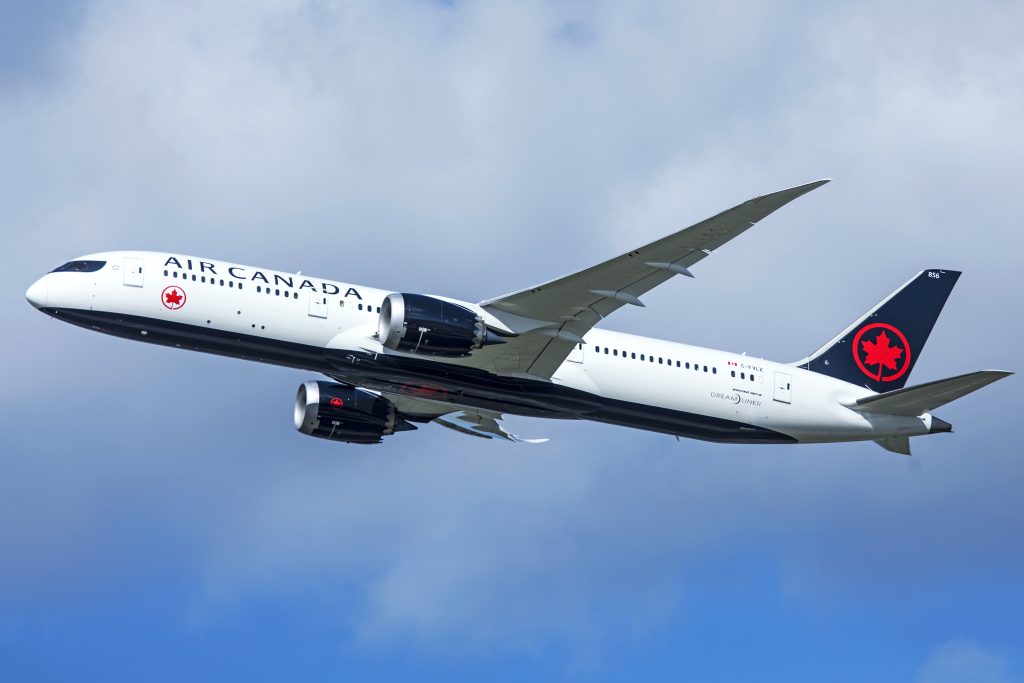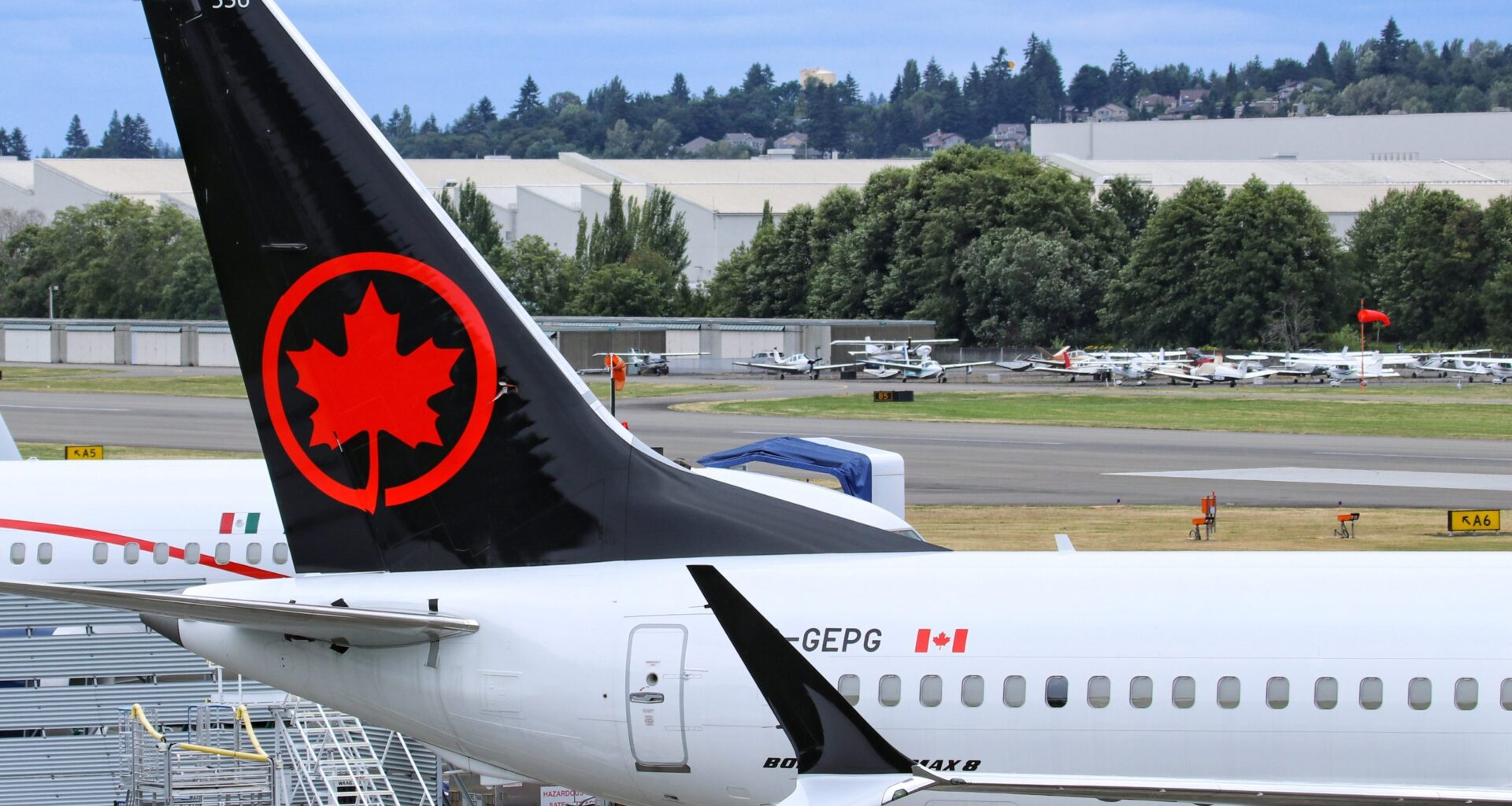The labor union representing the carrier’s flight attendants served a 72-hour strike notice early Wednesday.
By Zach Vasile
Key Takeaways:
The dispute stems from stalled contract negotiations, with CUPE rejecting Air Canada’s offer citing insufficient pay increases and unpaid work for flight attendants.
Air Canada proposed mediation, which was rejected by CUPE, leading Air Canada to consider binding arbitration to prevent further disruptions.
The strike will significantly impact Canadian travel and the national economy, potentially stranding thousands of passengers.
Air Canada said it will begin canceling flights this week as its flight attendants prepare for a strike, raising the possibility of a full operational shutdown by the weekend.
The Canadian Union of Public Employees, which represents about 10,000 flight attendants at Air Canada and its low-cost leisure-focused subsidiary Air Canada Rouge, served a 72-hour strike notice early Wednesday after over eight months of inconclusive contract negotiations. The airline, in turn, issued a 72-hour lockout notice.
Air Canada said the first flights will be canceled Thursday, with more on Friday, before a “complete cessation of flying by Air Canada and Air Canada Rouge on [Saturday] August 16.”
Air Canada is Canada’s largest airline and transports about 130,000 people per day. A full shutdown will likely leave thousands of travelers stranded and significantly impact the nation’s economy.
Only Air Canada Express flights, which are operated by Jazz and PAL Airlines, would continue to operate as normal.
“We regret the impact a disruption will have on our customers, our stakeholders, and the communities we serve,” said Air Canada President and Chief Executive Michael Rousseau. “However, the disappointing conduct of CUPE’s negotiators and the union’s stated intention to launch a strike puts us in a position where our only responsible course of action is to provide certainty by implementing an orderly suspension of Air Canada’s and Air Canada Rouge’s operations through a lockout. As we have seen elsewhere in our industry with other labour disruptions, unplanned or uncontrolled shutdowns, such as we are now at risk of through a strike, can create chaos for travellers that is far, far worse.”

An Air Canada Boeing 787-9 Dreamliner. (Photo: AirlineGeeks | William Derrickson)
The airline said it is reaching out to notify customers whose flights have been canceled and will offer a refund or a chance to rebook at a later date. Air Canada is also making arrangements with other Canadian and foreign carriers to offer alternative travel options where possible.
Contract Dispute
Air Canada and CUPE have been negotiating the terms of a new labor contract for months and remain far apart on key issues.
The carrier’s offer includes a 38% pay increase for flight attendants over four years, but the union claims that, with inflation factored in, its members would actually be taking a pay cut if they accepted the deal. CUPE also said the tentative contract does little to fix the problem of flight attendants performing “unpaid work,” including “critical safety-related duties.”
“With respect to Air Canada’s latest offer: it is below inflation, below market value, below minimum wage – and still leaves flight attendants unpaid for all hours of work,” the organization said in a statement.
CUPE’s flight attendant group voted on Monday to authorize a strike, with 99.7% in favor.
Air Canada has defended its offer and said CUPE effectively tanked negotiations by taking 10 days to arrange the strike authorization vote when it could have been bargaining. The carrier said it is not asking for any concessions from its flight attendants but had to reject their demands for “exorbitant” pay increases.
Air Canada said Tuesday that it proposed entering voluntary third-party mediation overseen by the Canadian government, but the union rejected its offer. The airline is now considering “all options,” which could include appealing to the Canadian government to enforce binding arbitration. This step might be needed, Air Canada said, to prevent further travel disruptions and “intolerable uncertainty” for customers.
CUPE, in turn, accused the airline of abandoning discussions with its workers.
“Air Canada has decided they no longer want to negotiate,” the union said. “They want to go to arbitration, rather than stay at the bargaining table and bargain a new contract. Everyone knows the best deals are negotiated at the bargaining table, not handed down by an outside third-party.”
CUPE opposes outside arbitration because an arbitrator would rely on legal precedent, and the organization is trying to break precedent “by ending the historic abuse of unpaid work in this industry.” The process would also take place without any input from the membership.
“An arbitrator’s determination would be final,” the union said. “Members would not get a chance to vote on it. Air Canada wants to go to arbitration because they want to take away our members’ democratic voice.”
Zach Vasile is a writer and editor covering news in all aspects of commercial aviation. He has reported for and contributed to the Manchester Journal Inquirer, the Hartford Business Journal, the Charlotte Observer, and the Washington Examiner, with his area of focus being the intersection of business and government policy.
Receive a daily dose of the airline industry’s top stories along with market insights right in your inbox.
